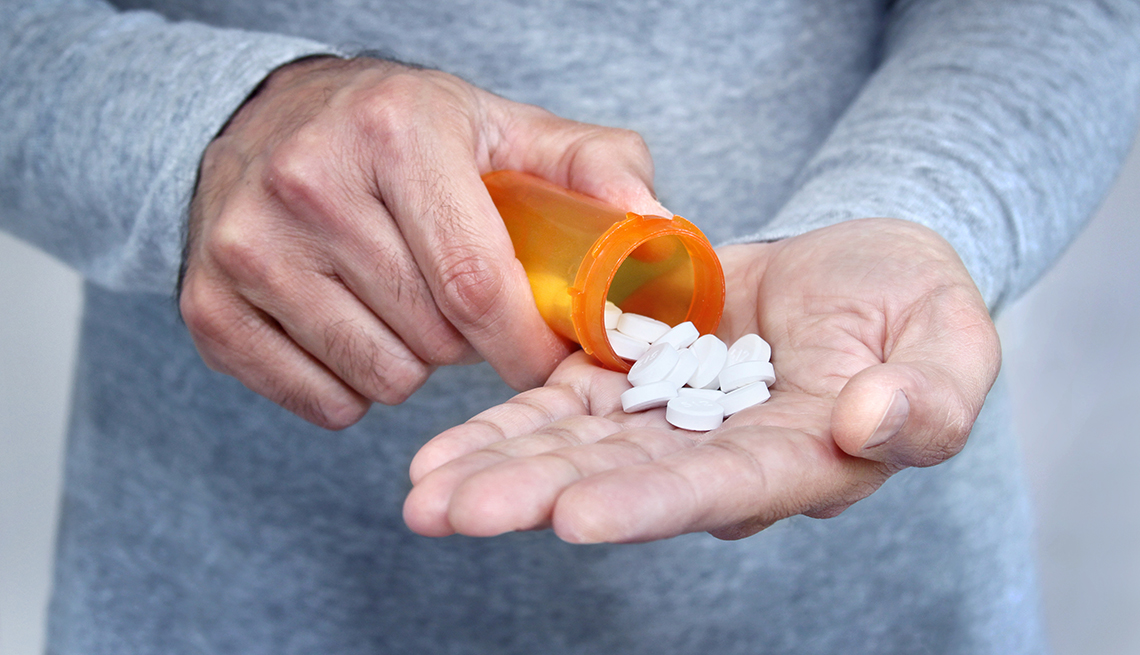
5 drugs that can lower cholesterol
- Select a language for the TTS:
- UK English Female
- UK English Male
- US English Female
- US English Male
- Australian Female
- Australian Male
- Language selected: (auto detect) - EN
Play all audios:

Cardiovascular disease remains the leading cause of death in the United States, claiming roughly the same number of lives each year as cancer, lower respiratory diseases and accidents
combined. Older adults bear the brunt of this burden: An estimated 80 percent of deaths from the disease occur in adults 65 and older. The good news, however, is that a lot can be done to
prevent cardiovascular disease — a catchall term for several conditions related to the heart and blood vessels (think heart attack, stroke and heart failure). A healthy lifestyle can go a
long way. So can controlling risk factors for the disease, a big one being high cholesterol. WHAT IS CHOLESTEROL? First, it’s important to know that cholesterol is not inherently bad. Our
bodies produce it in the liver to help build cells and make hormones. You can also get cholesterol from your diet, especially from foods high in saturated fat, such as cheeses and fatty
meats. Too much of it, though, can lead to the buildup of plaque along the walls of the blood vessels, causing them to narrow and increasing the likelihood of a heart attack or stroke.
Getting plenty of exercise and eating a heart-healthy diet can help keep your cholesterol numbers in check. And if your cholesterol is high, medications can help to bring it down. However,
research shows that a significant share of people who could benefit from cholesterol-lowering drugs aren’t taking them, and the reasons for opting out range from misinformation to concerns
about safety and cost. Still, experts say, the science stands. Lynne T. Braun, a nurse practitioner affiliated with the Rush Heart Center for Women in Chicago, says decades of research have
shown that when cholesterol is elevated — in particular LDL (low-density lipoprotein) cholesterol, sometimes called “bad cholesterol” — so is the risk of heart attack and stroke.
“Conversely, when LDL cholesterol is reduced through lifestyle measures and medication, the incidence of heart attacks, strokes and deaths decreases,” Braun notes. “There is a strong
relationship: Lower cholesterol equals fewer heart attacks and strokes.” KNOW YOUR NUMBERS High cholesterol doesn’t come with symptoms, so the only way to know you have it is with a routine
blood test. Most healthy adults should have their cholesterol checked every four to six years, according to the Centers for Disease Control and Prevention (CDC), though some may need it
tested more frequently. When you get your blood test report, you’ll see four numbers: * TOTAL CHOLESTEROL is the total amount of cholesterol in your blood. * HDL (HIGH-DENSITY LIPOPROTEIN)
CHOLESTEROL — also known as “good cholesterol” — helps take the “bad cholesterol” out of your body, so higher numbers are better. * TRIGLYCERIDES are a form of fat in the blood that is used
as an energy source to “fuel” your body. Too much, however, can cause health problems. * LDL CHOLESTEROL — the “bad cholesterol” — is the culprit for clogging your arteries. Prevention of
cardiovascular disease focuses on LDL cholesterol and ways to lower it. If your LDL level is elevated, your health care provider will map out a treatment plan based on your risk for having
cardiovascular disease.
